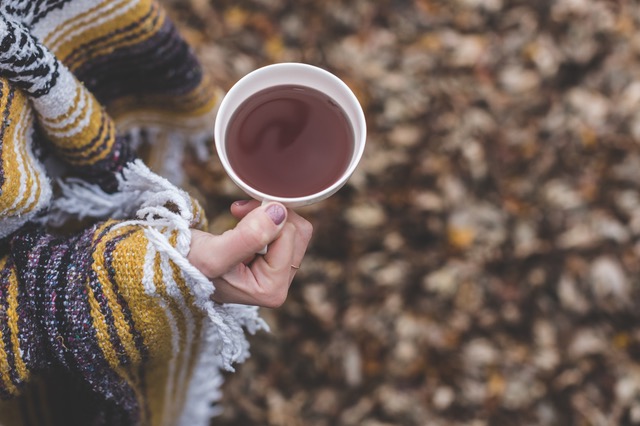
5 Nasty Effects of Cold Medicine
When many of us wake up on a chilly morning with cold symptoms, first instinct may be to raid the medicine cabinet for an elixir that promises solid rest and clear airways. But at what cost?
Here are five nasty side effects to watch out for in cold medicine.
1. Blood Sugar Spikes
Medicines like Delsyn contain high-fructose corn syrup and sucrose, they may as well be Chocolate Syrup. These sweeteners are chemically treated and quickly absorbed types of sugar that cause rapid blood sugar spikes. The pancreas is forced to kick into overdrive to compensate. Every time patients consume heavily concentrated forms of sugar they are increasing their chances of Type 2 Diabetes.
Insulin resistance is a second path to diabetes. Excess insulin after eating unnaturally sugary substances causes the body to lose sensitivity to insulin. More of the fat-storage hormone has to be produced to manage blood sugar, then weight gain occurs. It’s the accumulation of these artificial sweeteners or added sugars that cause issues. They should be avoided at all costs.
2. Cancer
Cough medicine alone probably won’t give you cancer, it adds to the deadly combination of unhealthy things we put in our bodies. Lorenzo Cohen University of Texas M.D. Anderson Cancer Center found that those who eat an excess of sugar, particularly fructose, are more likely to get cancer. Cough medicine contains sucrose, which is comprised of glucose and fructose.
Two types of preservative are also lurking in cough syrups in the form of methylparabens and propylparabens, typically found in cosmetics. The Campaign for Safe Cosmetics states that these preservatives cause cancer, reproductive toxicity and endocrine disruption when applied to the skin. What happens when these substances are being consumed? Children are particularly vulnerable to the effects of these parabens.
3. Crankiness
As if a kid with a cold wasn’t enough of a nightmare! HFCS, food coloring and artificial flavors can further add to mood swings and anxiety. Often times Yellow 5 is on the ingredients list, is directly linked with negative behavior in children. The Center for Science in the Public Interest quotes their executive director Michael F. Jacobson,
“These synthetic chemicals do absolutely nothing to improve the nutritional quality or safety of foods, but trigger behavior problems in children and, possibly, cancer in anybody,”
Psychology Today, consuming too much sugar can result in depression, anxiety, addiction and learning problems. In short, the stuff that is supposed to calm little ones down during an illness can fuel one killer tantrum.
4. Weight Gain
Endocrine-disrupting chemicals found in parabens can seriously throw hormones out of whack. Exposure is causing issues like hypothyroidism, according to the Environmental Protection Agency.
Hypothyroidism leads to a slower metabolic rate, thus causing extra pounds to pile on. Polypropylene, (found in cough medicine) act as synthetic estrogen and disrupt the endocrine system, according to the Environmental Working Group. This makes them EDCs (endocrine disrupting chemicals), which are everywhere; so we can at least reduce our intake a bit by kicking cough medicine.
5. Tooth Decay
“Tooth decay happens when plaque come into contact with sugar in the mouth, causing acid to attack the teeth,” says MouthHealthy.org.
How many times do you take a swig of medicine then immediately drop your head back to your pillow? That sugar is just sitting on your teeth, and acids are causing decay. MouthHealthy.org goes on to say tooth decay is the most common chronic childhood disease. Perhaps sugary medications are literally feeding this sticky issue.
Dr. Jack’s Solutions
When sick and it lasts for more than a day, your immune system is not working at full force. Most often there is an interference within the nervous system making the healing process difficult. When you start to feel sick. Call the office and get checked. We can get your immune system is working at its best so you can get over the problem quickly.
Ginger: The anti-inflammatory properties of ginger can speed along the healing process while reducing annoying symptoms. Chew on small pieces of the root or boil it with lemon to make tea.
Licorice: While needing to be used with caution (it can raise blood pressure), licorice can be beneficial for calming scratchiness in the airway while helping loosen phlegm. Use under the supervision of your doctor.
Peppermint: Menthol is in peppermint and soothes while working as an expectorant, which breaks up congestion so it can be expelled. Menthol already exists in many over-the-counter medications, but it can be used in its natural state without gross side effects.
Honey: Patients report sleep better and cough less when given honey before bed. Its antimicrobial and antibacterial properties do wonders. Do not give honey to children younger than a year old.
Tea: All the remedies mentioned can be combined into a variety of teas, which add to the already cough-busting qualities of the toasty beverage. The warm liquid and vapor can loosen mucus while boosting healing. Hydration thins congestion while strengthening the immune system. Specifically, green tea can balance your mouth’s pH, preventing tooth decay.
Recent Comments